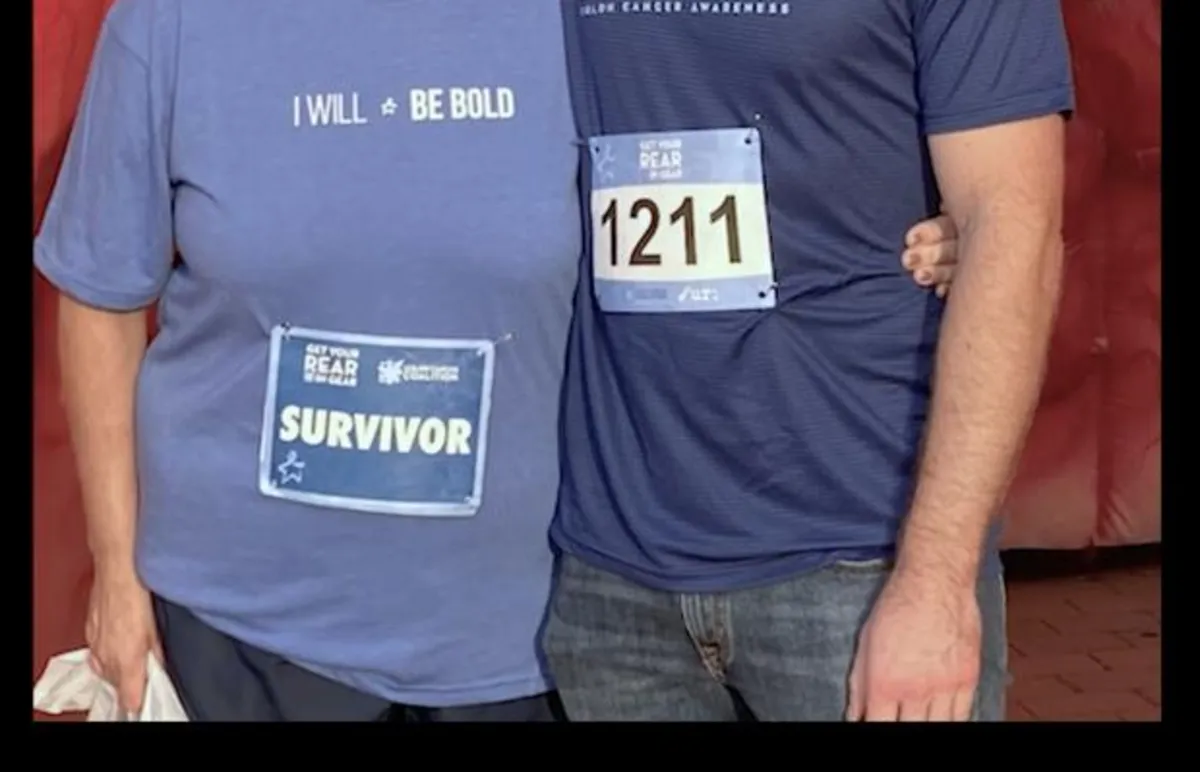
Diane Davis believed that a diagnosis of advanced ovarian cancer was the breakthrough she had been desperately seeking. For several months, she had been battling debilitating symptoms, with antibiotics proving ineffective in alleviating her discomfort. After numerous visits to the emergency room, where a CT scan and MRI yielded no clear answers, Davis found herself navigating a labyrinth of specialists. A colonoscopy also showed nothing significant, yet she continued to suffer from persistent lower back pain and severe nausea that left her unable to eat. "I just got sicker and sicker," Davis recalled.
In January 2017, Davis visited Dr. Christopher Darus, a leading gynecologic oncologist at MaineHealth Maine Medical Center. Concerned by her extensive family history of cancer, Dr. Darus promptly scheduled her for exploratory surgery the following day. During the procedure, he discovered a softball-sized ovarian tumor that had metastasized to other organs. Although the diagnosis was devastating, Davis felt a sense of relief, stating, "At least now we knew."
Dr. Darus successfully removed the tumor and outlined a treatment plan that included chemotherapy. However, after just three cycles, Davis faced another setback when a new mass was detected in her pelvis. "It's extremely rare and extremely ominous for ovarian cancer to return that quickly," Darus explained, noting that women whose cancer does not return within six months typically enjoy a better prognosis. Unfortunately, Davis' condition was further complicated by the spread of cancer to her lymph nodes. "I did not expect, halfway through chemotherapy, to be in a worse situation than I was when I was first diagnosed," she lamented.
In a bid to understand her unique case better, Dr. Darus submitted Davis' tumor for molecular testing. The results revealed unique biomarkers, leading to her diagnosis of Lynch syndrome. Dr. Paul Oberstein, a medical oncologist at NYU Langone, explained that Lynch syndrome is a genetic condition that increases susceptibility to various cancers, including ovarian cancer. This diagnosis provided crucial context to the cancer history in the Davis family and opened doors to additional treatment options.
Dr. Darus elaborated that Lynch syndrome is associated with at least four proteins responsible for DNA repair. If these proteins are deficient, as they are in Lynch patients, cellular mistakes accumulate, leading to cancer. "The tumors that arise in Lynch syndrome may have 50, 100, or more mutations, making it easier for the immune system to respond to the tumor," Oberstein added.
With few treatment options available, Dr. Darus began exploring checkpoint inhibitors, drugs that can unmask tumors and enable the immune system to attack cancer cells. Following the FDA's approval of a drug called pembrolizumab in June 2017, he prescribed it for Davis. Remarkably, after only two treatments, the mass in her pelvis had disappeared, and the cancer affecting her lymph nodes was in regression. "It was kind of like a ping-pong ball: you get diagnosed, then you get sick again, and the immunotherapy just swung me right back to feeling good," Davis shared.
Davis' diagnosis of Lynch syndrome had significant implications for her family. As a genetic condition, it carries about a 50% risk of being inherited. Although Davis was the first in her family to be diagnosed, they traced the condition back to her paternal grandfather. Tragically, her father and uncle both succumbed to cancer in their 60s, likely due to the same syndrome. Encouraging her children to undergo screenings, her son tested negative, while her daughter received a positive diagnosis. As a result, her daughter began early cancer screenings, which proved life-saving when a colonoscopy revealed a large precancerous polyp that was successfully removed.
After two years on immunotherapy, Davis remains cancer-free six years later, enjoying a healthy lifestyle. Although she continues to undergo regular scans and is at an increased risk of developing other cancers, she remains optimistic. Focusing on her grandchildren, who often visit for activities like hiking and snowmobiling, Davis reflects on her past challenges with gratitude. "It's been amazing. It's getting further and further in the distance, which is really strange, because when the chemotherapy failed, I pretty much thought, 'This is it,'" she said. "But it was amazing. It was really, really amazing."